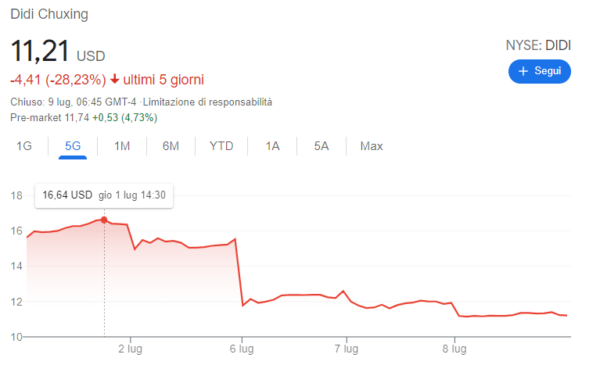

But what will the implications be, domestically and globally, and ultimately, how should businesses and governments internationally see this “new normal?” The initial justifications of protecting cybersecurity and personal information of China’s citizens, taken in light of the Chinese rulers’ dominating thoughts on national security, may be understandable. or otherwise, have shelved the idea for now, such as Bytedance, holding company of video platforms Tiktok and its domestic version Douyin. Even some companies in their earlier stages of considering an IPO overseas, U.S. IPOs have also been suspended, including LinkDoc (a medical data group backed by Alibaba), Keep (a health app) and Ximalaya (a video blogger platform). Likewise, Tencent's earlier proposal to "streamline its stakes" to reach a merger with Huya and Douya, China's top two streaming sites for video games, was blocked by the SMAR, which cited the firm's failure to come up with sufficient remedies on relinquishing certain exclusive rights. Several Internet companies, including Didi Chuxing, Tencent and Alibaba, were fined by the State Administration of Market Regulation (SAMR), China’s chief antitrust regulator, for failing to report earlier merger and acquisition deals for approval. A flurry of escalated regulatory actions has since followed. What is obvious is, that this is not an isolated incident. The timing of Didi’s IPO and the government’s reaction - one day before and after Beijing’s grand celebration of the 100th anniversary of the Chinese Communist Party - has also invited inevitable speculation about its political inference. Since the Chinese government initiated its investigations and imposed sanctions against Didi Chuxing on July 2, two days after Didi Global’s initial public offering (IPO) on the New York Stock Exchange on June 30, there has been widespread external public consensus that the Chinese official actions implied stronger regulatory strangleholds on China’s Internet “big techs,” as well as deterrence against further foreign IPOs. Charles Mok analyses the aftermath of Didi’s IPO and what this means in the greater scheme of things. But it would be short-sighted to believe that this is only relevant for big tech companies such as Alibaba and, most recently, Didi.
#DIDI KEEP XIMALAYA LINKDOC IPOTIMES INSTALL#
The United States can be crossed off that list now.The Chinese government's reaction to Didi’s overseas IPO was not an isolated incident - it is looking to install tighter control over data and capital. Reuters reported earlier this year that the TikTok owner was considering a mammoth listing in New York or Hong Kong read more. That puts ByteDance and other companies mulling going public in a tough spot. LinkDoc, which was slated to price its IPO on Thursday for a listing on the Nasdaq, now has second thoughts, according to Reuters. It began last week when the Cyberspace Administration of China said it was investigating Didi Global (DIDI.N) just days after the ride-hailing giant went public on the New York Stock Exchange read more. Beijing’s new sweeping mandate to intensify scrutiny of overseas IPOs puts many more at risk read more. But others that hold less sensitive information, like fitness app Keep and podcasting platform Ximalaya, have also given up on a U.S.



It's easy to see why the medical data firm might be exactly the kind of local startup Chinese regulators don't want to go public in the United States. WASHINGTON, July 8 (Reuters Breakingviews) - LinkDoc Technology is pulling its U.S.


 0 kommentar(er)
0 kommentar(er)
